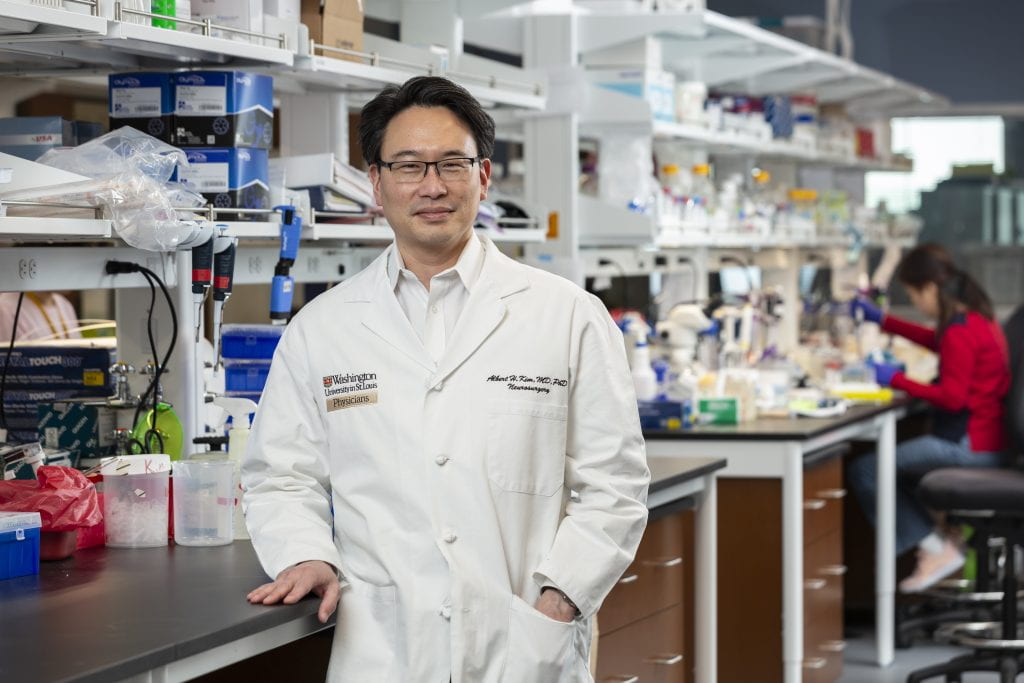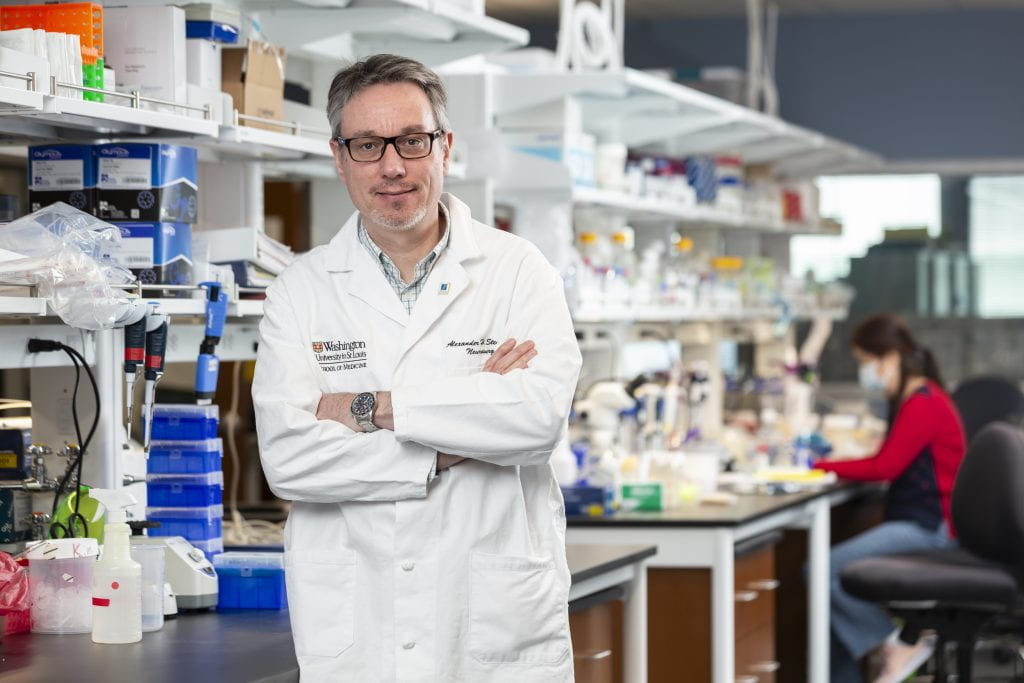The Brain Tumor Center’s basic, translational, and clinical research programs are focused on understanding the biology of malignant and benign brain tumors, developing innovative treatments and bringing those innovations from our laboratories to our patients.
Established in 2021, The Brain Tumor Center is centered within the vibrant community of Washington University School of Medicine in St. Louis — a global leader in cancer biology, neuroscience, immunology, molecular imaging and high-speed comprehensive genomic and epigenetic research. Research laboratories from neurosurgery, neurology, medical and pediatric oncology, radiation oncology, radiology, immunology and pathology, and genetics seek new treatments for the most common as well as rare brain tumors.
Leveraging cutting-edge medical, surgical and radiation technologies at the Alvin J. Siteman Comprehensive Cancer Center, one of the nation’s elite cancer research institutions, and Barnes-Jewish Hospital and St. Louis Children’s Hospital, our physicians and scientists have developed a broad-based clinical research portfolio with over 35 ongoing clinical trials.
Our Center Director

Albert H. Kim, MD, PhD, is a nationally recognized expert on brain tumors. Kim’s pioneering research, which has been continuously funded by the National Institutes of Health (NIH) since 2012, has transformed our understanding of one of the deadliest forms of brain cancer, glioblastoma, as well as aggressive benign brain tumors such as meningioma.
Our Research Director

Alexander H. Stegh, PhD, is a national leader in the study of glioblastoma, one of the most aggressive forms of brain cancer. His research focuses on uncovering genetic drivers of glioblastoma through a combination of cellular and molecular biology, engineered mouse models, and oncogenomics, the latter of which is a subfield of genomics that characterizes cancer-associated genes.
Our Home
On Jan. 18, 2024, the Jeffrey T. Fort Neuroscience Research Building was officially dedicated. As one of the world’s largest neuroscience research buildings, it brings together investigators in neurology, psychiatry, anesthesiology, neuroscience, neurosurgery and other areas to better understand diseases of the brain and to develop better treatments.